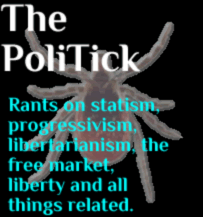"The curious task of economics is to demonstrate to men how little they really know about what they imagine they can design." -- F. A. Hayek
I had a chat with a coworker a couple evenings ago. I had suspected he was rather lefty in his ideology, but hadn't considered the possibility that he was actually socialist.
He was.
The conversation was amiable nonetheless, and I came away from it knowing I'd given him some things to think about. I also gave myself something to think about. In response to one of his more progressive-minded statements, I replied, "One of the biggest problems I have with Marxism and with liberalism in general is the notion that we can design society. We can't. It evolves organically."
This is nothing new; I've said as much on many occasions. But something else occurred to me, which I added (and I paraphrase): "I guess the problem is that we take the American Experiment to be more than it is supposed to be. The Founders attempted to design a government, not a society. Somehow we've gotten it into our heads that we have arbitrary design control over society, and we don't."
I thought then about something Jon Stewart had said, years ago when I was still an avid watcher of the Daily Show. He had a conservative Republican as a guest (Mike Huckabee, I think). As the conversation wound down, Jon appeared to somewhat agree with something the guest said, qualifying it with "but we have to decide whether we want to be the kind of society that takes care of its own."
Stewart was committing the same fallacy I've busted many chops for since then, conflating "society" with "government." We can be a society that takes care of its own without government forcing us to do so.
Am I right about the origins of the progressive design sensibility? Do progressives assume that the Constitution, rather than serving as a means of limiting federal government growth and power, serves as a model for how we can direct society's evolution?

No comments:
Post a Comment